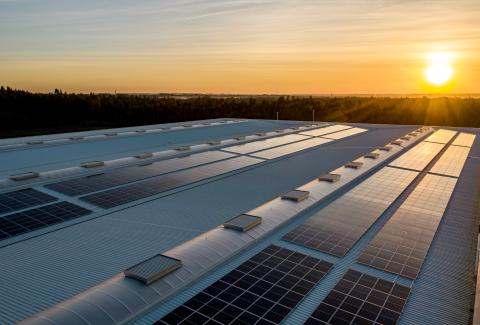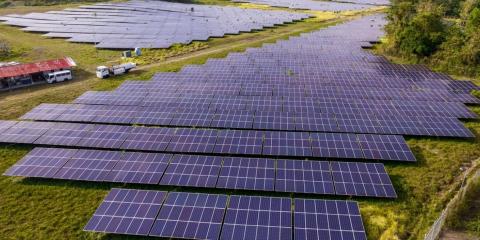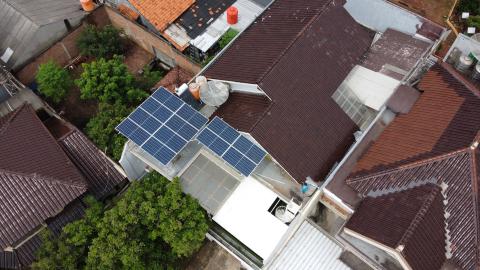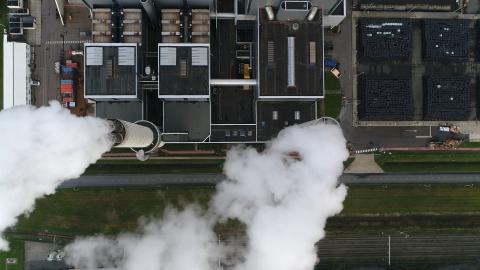Alabama PSC Needs More Sunlight in Rate Decisions
Last month, the Georgetown, Texas, city council signed contracts that will provide power to homes and businesses 100 percent through solar and wind energy beginning in 2017. As the city’s mayor noted, Georgetown had not been hijacked by “environmental zealots”; the switch to renewable energy was “chiefly a business decision based on cost and price stability.”
Closer to home, the Tennessee Valley Authority is in the midst of its 2015 Integrated Resource Planning, which determines the long-term mix of resources needed for generating electricity. When finished, TVA will have held seven public meetings to debate plans for meeting growing demand — plans that include energy efficiency and more renewables, especially solar.
Together, there are important lessons for Alabama to take away from the Georgetown and TVA examples — in particular, how to fix the Alabama Public Service Commission’s failure to look out for the best interests of families and businesses.
As the Institute for Energy Economics and Financial Analysis detailed in a report released last month for our organizations, the PSC’s decision-making leaves utility customers on the hook for billions of dollars in expenditures without public review. In December, commissioners rubber-stamped a 5 percent rate hike for Alabama Power to recover $256 million in expenditures. The increase will add $80 to average electricity bills annually.
In fact, PSC decisions since 2005 have burdened Alabama Power customers with more than $3 billion in power plant upgrades — and some of the highest bills in the country — all without any evidence that they were the most cost-effective and least economically risky alternatives.
IN MOST OTHER STATES, DECISIONS WITH THAT KIND OF IMPACT ARE OPEN TO VIGOROUS DEBATE and thorough public review. Stakeholders, including consumer rights groups, can challenge the prudence of big-ticket expenditures — like the billions Alabama Power has sunk into pollution controls for outdated, decades-old coal plants.
Was it prudent to make customers pay for that?
We’ll never know because no part of the PSC’s deliberations was public. The entire process took place in a single “public” window-dressing meeting that was over in less than a day and whose outcome was predetermined in secret. Leading up to the rate hike, Alabama Power didn’t have to publicly justify its expenditures, and the commissioners asked few questions about the wisdom of making customers foot the bill when there are less costly alternatives.
The Georgetown and TVA examples show clearly that viable, affordable alternatives exist and that involving the public in-depth is a win-win for everyone.
WHEN THE PUBLIC IS SHUT OUT AND UTILITIES COMMISSIONS FAIL TO RECOGNIZE CHANGING ENERGY MARKETS, it comes with big costs. Just ask customers of Alabama Power’s sister company in Mississippi, who have absorbed substantial rate increases to pay for a coal plant whose $6.2 billion price tag is more than double original estimates — and who would be on the hook for more if not for a court ruling saying the Mississippi PSC violated the public trust by approving a $200 million rate hike in secret.
Generating electricity is an expensive endeavor, whether building a solar plant or wind farm, or retrofits for coal plants. These are important business decisions, and the place to weigh their pros and cons is through formal review of the Integrated Resource Plan.
SACE, SELC and GASP have strong opinions on this. We believe there is overwhelming evidence that investing in energy sources like solar and wind and in energy efficiency is a more prudent and less costly strategy than sinking money into keeping aging coal plants running.
And in places where utilities commissions take seriously their mission to balance the interests of customers and utilities, many are capitalizing on the economic, health and environmental virtues of clean energy.
Others have different opinions, which we respect. The real point is that we need a public forum in which to have this debate, where all the data can be weighed and the end goal is sound decision-making that will benefit both Alabama families and businesses.
The PSC won’t allow that. By making decisions in secret and thwarting a healthy public dialogue, they keep us all in the dark. Both literally and figuratively, sunlight is the best disinfectant for such problems.
Keith Johnston is the managing attorney for the Southern Environmental Law Center’s Birmingham office. Amelia Shenstone is the organizing manager and Alabama liaison for Southern Alliance for Clean Energy. Haley Colson Lewis is the programs manager for GASP in Birmingham.
This commentary appeared originally in the Montgomery (Ala.) Advertiser.














